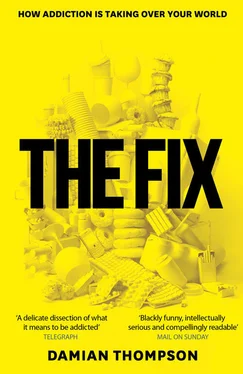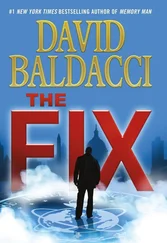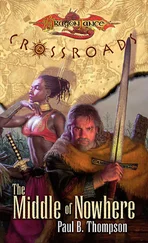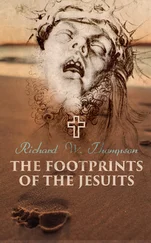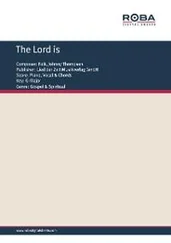1 ...7 8 9 11 12 13 ...19 This produced a sniffle of feminist disapproval from a couple of young women in the room, who looked like business executives: the meeting was hosted by one of the Wren churches in the City of London. But no one argued with Pippa’s claim that she suffered from a disease. I attended those lunchtime meetings three times a week in the shaky few months after I stopped drinking, and never once did I hear alcoholism described as anything other than a physical illness. ‘Allergy’ was one description; much more common was the phrase borrowed from the ‘Big Book’, the bible of Alcoholics Anonymous – ‘a cunning, baffling and powerful disease’.
I had no doubt that I was an alcoholic. Alcoholism is the name for addiction to alcohol, and therefore I was also an addict – a useful word to describe someone who indulges in a pursuit so excessively that it harms them. The AA fellowship kept me away from alcohol thanks to the remarkable power of peer-group moral support, and especially the support of strangers, which has its own special potency. But I never thought my alcoholism, or any form of addiction, was a disease. Wisely, though, I kept that opinion to myself at those lunchtime meetings.
Lots of the attendees, Pippa included, seemed almost proud they had this ‘disease’. They talked about it in the defensive but boastful manner in which, years later, people would discuss their recently discovered ‘food intolerances’. They also referred all the time to ‘the alcoholic personality’, as if everyone who ended up in the rooms shared deeply rooted personality traits. Again, I couldn’t see it: on the contrary, I was surprised by how little the members of the fellowship had in common. But if I’d questioned any aspect of the AA worldview, I’d have been corrected immediately: ‘Don’t you dare tell me I haven’t got a disease!’ Or I’d have been fobbed off with words of wisdom: ‘Alcoholism is the one disease that tells you that you haven’t got it’ – an infuriating AA epigram designed to close down debate rather than open it up.
Alcoholics Anonymous dates its foundation from 1935, when it changed from a specifically Christian mission to drunks into an independent fellowship of self-help groups with a strong but deliberately all-inclusive religious ethos. Since then, AA has achieved two extraordinary things. First, it has saved the lives of innumerable drunks. I’m probably one of them, so I feel a bit churlish suggesting that its other major achievement – the dissemination of the disease model – has distorted the modern world’s understanding of addiction.
The fellowship’s first medical adviser, the psychiatrist Dr William Duncan Stillworth, declared: ‘Alcoholism is not just a vice or a habit. This is a compulsion, this is pathological craving, this is disease!’ 1 Конец ознакомительного фрагмента. Текст предоставлен ООО «ЛитРес». Прочитайте эту книгу целиком, купив полную легальную версию на ЛитРес. Безопасно оплатить книгу можно банковской картой Visa, MasterCard, Maestro, со счета мобильного телефона, с платежного терминала, в салоне МТС или Связной, через PayPal, WebMoney, Яндекс.Деньги, QIWI Кошелек, бонусными картами или другим удобным Вам способом.
This disease is both incurable and progressive, according to AA. The only way to keep its symptoms under control is by a programme of total abstinence based on the famous 12 steps to recovery. In Step 1, sufferers acknowledge their powerlessness over alcohol. Other steps tell them to seek help from God, examine their character defects and make amends for the harm they caused when they were drinking. But – and this is the crucial point – AA reassures them that they cannot be blamed for the wreckage of their lives, because the disease robbed them of their free will.
This raises an obvious question. What about heavy drinkers who give up alcohol of their own accord, without any help from AA or the steps? The fellowship’s answer is a masterpiece of circular logic. Since these drunks exercised free will in stopping drinking, and since the disease of addiction robs you of your free will, they cannot have had the disease and were therefore never alcoholics in the first place.
That AA formula has had an extraordinary appeal for generations of ex-drinkers. The organisation has 1.2 million members in the United States who attend 55,000 meeting groups; there are over two million members worldwide. The fellowship is sometimes described as a religious movement, but it would be more accurate to describe it as a self-help group with religious overtones. The Big Book talks explicitly about God, though it adds that ‘God’ is shorthand for ‘a power greater than yourself’. That power can be a supernatural being or (for atheists and agnostics) simply the fellowship itself.
The disease model, enshrined in the 12 steps, has spread everywhere, perhaps thanks to the fact that AA has never attempted to copyright it. It’s happy for anyone to borrow its formula. As Brendan Koerner put it in Wired magazine, the 12 steps became ‘essentially open source code that anyone was free to build on, adding whatever features they wished’. 2 Конец ознакомительного фрагмента. Текст предоставлен ООО «ЛитРес». Прочитайте эту книгу целиком, купив полную легальную версию на ЛитРес. Безопасно оплатить книгу можно банковской картой Visa, MasterCard, Maestro, со счета мобильного телефона, с платежного терминала, в салоне МТС или Связной, через PayPal, WebMoney, Яндекс.Деньги, QIWI Кошелек, бонусными картами или другим удобным Вам способом.
As a result, there are around 200 separate 12-step fellowship networks covering all sorts of addictions. Narcotics Anonymous and Gamblers Anonymous have flourished since the 1950s, Overeaters Anonymous since 1960. Marijuana, cocaine, crystal meth and nicotine have their own 12-step programmes. (In Nicotine Anonymous, being tobacco-free is referred to as being ‘smober’.) There are fellowships dedicated to sex addiction and co-dependence. Online Gamers Anonymous was founded in 2002.
These groups have their own take on the 12 steps, but they leave intact the part of the open-source code that identifies addiction as a disease. Indeed, the vast majority of professional addiction specialists also embrace it. When Alcoholics Anonymous tells its members that medical opinion overwhelmingly thinks of addiction as a disease, it is telling the truth.
But that doesn’t mean that medical opinion is right. On closer examination, many specialists derive their ideas from 12-step groups rather than the other way round. Let me illustrate why I think the disease model is flawed by telling the stories of two addicts who were friends of mine.
In the late 1990s I got to know two young men, Robin and James, who had been inseparable at university. They were in their late 20s, bright, charming and socially ambitious. Both had been to minor public schools but neither had got into Oxford or Cambridge, so when they arrived at their redbrick university they had to settle for its wannabe Brideshead drinking societies. At least once a fortnight they would dress up in black tie and perform the charming party tricks they associated with Oxbridge – climbing up scaffolding and urinating on pedestrians, that sort of thing. When their hangovers allowed, they read Evelyn Waugh, whose cruel snobbery delighted them. They were less keen on textbooks and, despite fluent pens, did badly in exams.
Читать дальше
